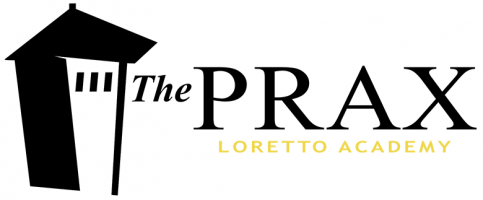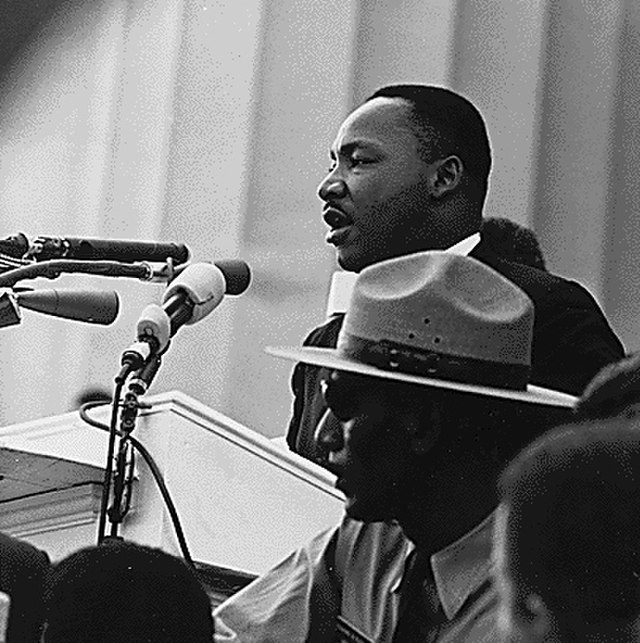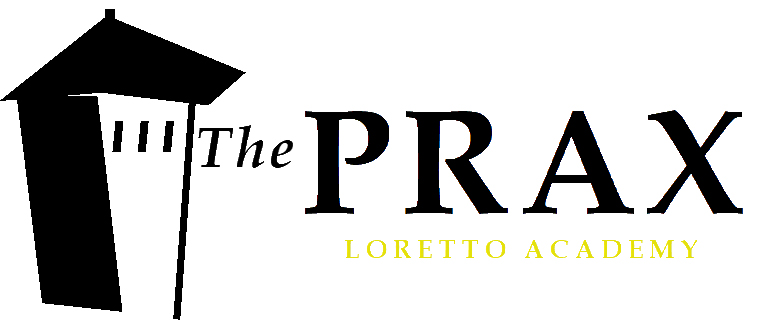Decade of division: 2010s movements in review
Martin Luther King Jr. speaks on the importance of civil rights at a march. King inspired a movement to end segregation and racial injustice amid division. Photo courtesy of Wikimedia Commons.
February 7, 2020
This year — the first year of the new decade — Americans celebrated Martin Luther King Jr. Day on Monday, January 20.
This federal holiday, held on the third Monday of January, celebrates the monumental life and legacy of Martin Luther King Jr., an American civil rights icon who nonviolently advocated for racial equality during the 1950s and 1960s.
Although most students and workers have the day off for MLK Day, it was not intended as a day of rest or relaxation.
According to the Corporation for National and Community Service, MLK Day is the only federal holiday specifically set aside as a day encouraging Americans to go out and improve their communities, drawing on the passion for justice that the day’s namesake famously had.
The era of the Civil Rights Movement in the 1960s was a turbulent one in America’s history, and from the unrest arose such inspirational figures as King who was able to unite thousands of people behind him to inspire positive social change.
More than 50 years after his death on April 4, 1968, King’s legacy of protest lived on in the civil rights and civil liberties movements that dominated the political landscape of the last decade.
The first of these movements was Occupy Wall Street, which began on September 17, 2011 in New York City’s Wall Street financial district.
Occupy Wall Street was a political movement protesting the steep income inequality in the United States; it drew national attention to the huge pay gap between the richest Americans and the poorest Americans, according to The Atlantic.
“We are the 99 percent,” cried the thousands of protesters, fighting against the corrupt influence of corporations on the government.
Following Occupy Wall Street was a gradual movement in America supporting LGBTQ+ rights.
In 2011, former President Barack Obama repealed the discriminatory 1993 “Don’t Ask, Don’t Tell” Clinton policy that allowed gay Americans to serve in the military as long as they kept their sexuality a secret under threat of discharge, according to History.com.
In 2015, the Supreme Court legalized gay marriage across the country in a landmark victory for the LGBTQ+ community in America; the Court’s decision reflected the spirit of acceptance that had begun to gradually settle across the United States.
Following that was the beginning of the Black Lives Matter movement in 2013, a movement protesting violence and systemic racism against black Americans; it harkens back to King’s legacy in a way that is almost uncomfortably identical.
The Black Lives Matter movement began in July 2013 as a response to the murder of Trayvon Martin, a 17-year-old African-American, by George Zimmerman, an armed neighborhood watch captain, according to CNN.
The movement is still going strong today, and it has dedicated its energy to protesting acts of police brutality and bringing justice and healing to black people around the globe.
In 2016, thousands fought for indigenous rights in America as part of the Dakota Access Pipeline (DAPL) protests.
This movement protested the construction of an oil pipeline across North Dakota that would run through sacred Native American land and possibly contaminate the water supply of the resident Standing Rock Sioux tribe.
Although the pipeline’s construction was halted by the Obama administration at the end of 2016, it was eventually completed under the Trump administration in 2017.
However, their fight isn’t over yet; many 2020 Democratic presidential candidates have pledged to revoke the DAPL permits, according to The Guardian.
Following the pipeline protests was the 2017 #MeToo movement, which brought national attention to the issue of sexual harassment and violence against women in America.
According to Vox, the phrase “me too” came from a tweet from actress Alyssa Milano drawing inspiration from activist Tarana Burke: “If all the women who have ever been sexually harassed or assaulted wrote ‘Me too’ as a status, then we give people a sense of the magnitude of the problem.”
#MeToo gave a voice to the survivors of sexual assault, and it led to justice for many of these survivors.
For example, former American film producer Harvey Weinstein is currently on trial in New York for the dozens of sexual abuse accusations that were leveled against him by several women in the film industry, according to BBC.
Next came the March for Our Lives movement of March 2018, protesting the prevalence of gun violence in America as a result of limited gun control policy.
March for Our Lives was led by the survivors of a shooting at Stoneman Douglas High School in Parkland, Florida; they mourned the deaths of their friends and demanded gun legislation as justice, speaking for youth all across America.
Last but not least, the final movement of the decade was the Global Climate Strike in September 2019, sparked by the climate activism of Swedish teenager Greta Thunberg.
Thousands of Americans of all ages gathered in the streets of major cities to demand legislative action against climate change and pollution.
All of these movements — whether their aims were social, political, economic, or environmental — has as catalysts people who so dedicated to the cause of justice that they were willing to challenge the status quo in order to achieve it.
America is a country founded on protests, and it is a country bettered by them — the legacy of Martin Luther King Jr. and his dream of a land of equality proves this to be so.





